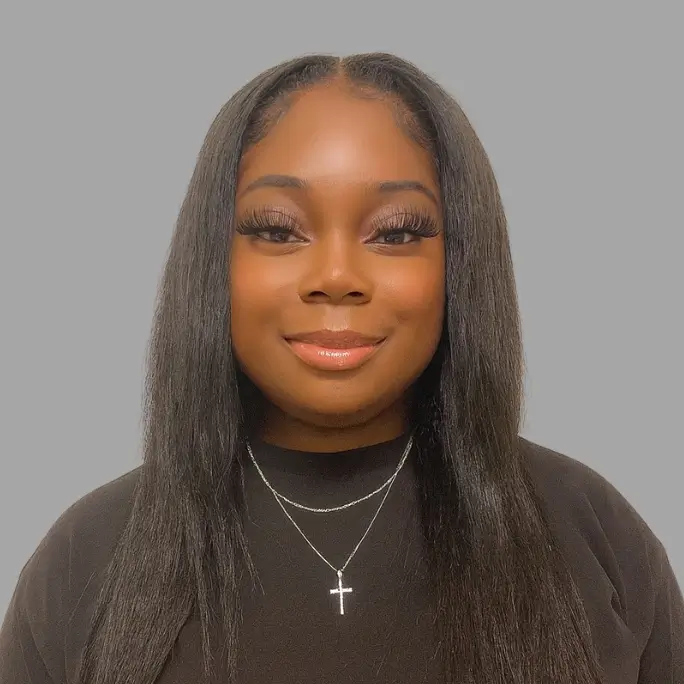As the world’s population continues to age, the demand for senior caregivers is on the rise. Senior caregivers are responsible for providing care and assistance to elderly individuals who may need help with daily activities such as bathing, dressing, and taking medication. If you’re a senior live-in caregiver looking to land your dream job, it’s important to be prepared for the interview process. In this article, we’ll go over the top caregiver interview questions and answers that senior caregivers should prepare for and provide tips on how to respond.
Overview of the Senior Caregiving Industry:
Before we dive into the interview questions, let’s take a moment to discuss the senior caregiving industry. Senior caregiving is a rapidly growing field that offers many job opportunities. Senior caregivers work in various settings, including private homes, assisted living facilities, and nursing homes. As a senior caregiver, your primary responsibility is to provide care and support for elderly individuals who may have physical or mental health conditions that require assistance.
While the job of a senior caregiver can be rewarding and fulfilling, it can also be challenging. Caregivers must be compassionate, and patient, and have excellent communication skills. Additionally, caregivers must be knowledgeable in a variety of areas, including personal care, medication management, and safety protocols.
Importance of Interview Preparation:
Preparing for an interview is essential for any job seeker, but it’s especially important for senior caregivers. Employers want to ensure that they’re hiring the right person for the job, and the interview process is the perfect opportunity for them to assess your qualifications and experience. By preparing ahead of time, you’ll be able to showcase your skills and answer caregiver interview questions and answers confidently based on real-life experience.
One of the best ways to prepare for an interview is to research the company you’re applying to. Take a look at their website, social media pages, and any other relevant information you can find. This will give you a better understanding of the company’s values, mission, and culture. Additionally, be sure to review the job description and requirements so that you can tailor your answers to the specific job.
Top 10 Caregiver Interview Questions and Answers:
As most caregiving companies lay a lot of stress on the initial interview process and screening, it is important for caregivers to prepare properly for their job interview. Guides like the top 48 caregiver interview questions and answers or even shorter lists such as 24 caregiver interview questions and answers can also help caregivers familiarize themselves with common themes.
1. Can you tell us about your experience as a senior caregiver?
This is a common question that you’re likely to encounter during your interview. The employer wants to know about your previous experience and how it relates to the job you’re applying for. When answering this question, be sure to highlight your relevant experience, including any certifications or training you’ve received.
2. How do you handle difficult situations with clients?
Senior caregiving can be a challenging job, and difficult situations are bound to arise. The employer wants to know how you handle these situations and what steps you take to resolve them. When answering this question, focus on your problem-solving skills and ability to remain calm under pressure.
3. How do you communicate with clients and their families?
Effective communication is essential for any caregiver. The employer wants to know how you communicate with clients and their families and how you ensure that everyone is on the same page. When answering this question, emphasize your ability to listen actively and communicate clearly.
4. How do you ensure the safety of your clients?
Safety is a top priority for any caregiver. The employer wants to know how you ensure the safety of your clients and what steps you take to prevent accidents or injuries. When answering this question, highlight your knowledge of safety protocols and your attention to detail.
5. Are you comfortable with personal care tasks, such as bathing and dressing?
Personal care tasks are a fundamental part of senior caregiving. The employer wants to know if you’re comfortable performing these tasks and if you have any previous experience. When answering this question, be honest about your comfort level and highlight any relevant experience or training.
6. Are you willing to work flexible hours?
Caregiving can be a demanding job that requires flexibility. The employer wants to know if you’re willing to work flexible hours and if you have any scheduling restrictions. When answering this question, be honest about your availability and highlight any scheduling preferences or limitations.
7. How do you handle ethical dilemmas?
Ethical dilemmas can arise in any caregiving job. The employer wants to know how you handle these situations and what steps you take to ensure that you’re making the right decisions. When answering this question, emphasize your ability to follow ethical guidelines and your commitment to doing what’s best for the client.
8. How do you work as part of a team?
Senior caregiving often involves working as part of a team. The employer wants to know how you work with others and how you contribute to a positive team environment. When answering this question, highlight your communication and collaboration skills and your ability to work towards a common goal.
9. Can you tell us about a difficult experience you had as a caregiver and how you handled it?
This question is designed to assess your problem-solving skills and your ability to handle difficult situations. When answering this question, focus on the steps you took to resolve the situation and the outcome of your actions.
10. Why do you want to work as a senior caregiver?
This question is an opportunity for you to showcase your passion for the job. When answering this question, be honest about why you chose senior caregiving as a career and what motivates you to do your best work.

How to Answer Questions About Experience and Qualifications?
When answering questions about your experience and qualifications, be sure to highlight your relevant skills and certifications. If you’re new to the industry, emphasize your willingness to learn and your enthusiasm for the job. Additionally, be sure to provide examples of how your skills and experience relate to the specific job you’re applying for.
How to Answer Questions About Handling Difficult Situations?
When answering questions about difficult situations, focus on your problem-solving skills and your ability to remain calm under pressure. Provide examples of situations you’ve encountered in the past and the steps you took to resolve them. Additionally, emphasize your ability to communicate effectively with clients and their families during difficult situations.
How to Answer Questions About Communication and Teamwork?
When answering questions about communication and teamwork, highlight your ability to listen actively and communicate clearly. Provide examples of how you’ve worked with others in the past and the steps you took to contribute to a positive team environment. Additionally, emphasize your willingness to collaborate with others and your commitment to working towards a common goal.
How to Answer Questions About Personal Care and Safety?
When answering questions about personal care and safety, be honest about your comfort level and highlight any relevant experience or training. Additionally, emphasize your knowledge of safety protocols and your attention to detail when performing personal care tasks.
How to Answer Questions About Availability and Flexibility?
When answering questions about availability and flexibility, be honest about your scheduling preferences and limitations. If you’re willing to work flexible hours, emphasize your willingness to do so and your availability. Additionally, provide examples of how you’ve handled scheduling conflicts in the past.
How to Close the Interview and Follow-Up?
When the interview is coming to a close, be sure to express your gratitude for the opportunity and your enthusiasm for the job. Ask any remaining questions you may have and inquire about the next steps in the process. Additionally, be sure to follow up with a thank-you email or note to reiterate your interest in the job.
Additional Interview Tips:
Some additional interview tips to keep in mind include:
- Dress professionally and arrive on time
- Bring extra copies of your resume and any relevant certifications or training
- Practice answering common interview questions with a friend or family member
- Be confident and positive throughout the interview
- Ask thoughtful questions about the job and the company
The Takeaway:
Preparing for an interview as a senior caregiver is essential for landing your dream job. By understanding the top 10 interview questions and how to answer them effectively, you’ll be able to showcase your skills and experience and impress potential employers. Remember to be honest, confident, and positive throughout the interview process, and you’ll be well on your way to a fulfilling career as a senior caregiver.
Frequently Asked Questions – FAQs
To introduce yourself in a caregiver interview, start by giving your name and a brief overview of your relevant experience and qualifications. You could say something like, “Hello, my name is [Name] and I have [Number of years] years of experience as a caregiver. I have worked with clients of all ages and backgrounds, and I am passionate about providing compassionate care and support to those who need it.”
As a caregiver, your three main strengths might depend on your individual skills and experiences, but some common strengths include:
– Empathy and compassion
– Patience and flexibility
– Attention to detail
The most important skill for a caregiver is arguably empathy. Being able to understand and relate to your clients’ emotions and experiences can help you provide the compassionate care and support they need to thrive. Other important skills for caregivers might include communication, problem-solving, and time management.
Caregivers face a wide range of challenges, depending on the specific nature of their work. Some common challenges include:
– Emotional stress and burnout
– Physical strain
– Time management
– Financial strain
In general, a common weakness for caregivers might be struggling to set appropriate boundaries with clients or feeling overly emotionally invested in their clients’ lives. It’s important for caregivers to maintain a professional distance while still providing compassionate care and support.





